Jan Harrison was behind the wheel of her car when she first realised her eyesight was deteriorating.
Her job at the time required a lot of driving, but in the evenings, as dusk fell and traffic increased, she found it harder and harder to see the vehicles in front of her.
It was, she later discovered, the beginnings of night blindness.
“I’d be driving at 30 or 40 miles per hour,” she recalls. “In peak-hour traffic! Can you imagine how popular that made me?”
The 69-year-old, who lives in Lossiemouth, was eventually diagnosed with macular degeneration, a progressive eye condition that causes vision loss.
Originally from Brisbane, Jan had moved to Scotland 15 years earlier and was working as a learning co-ordinator for disabled adults when her diagnosis turned her world upside down.
Her condition forced her to reassess many aspects of her life, including her independence and living in her beautiful seafront home. At first, the changes were difficult to accept.
She admits her initial reaction to losing her eyesight was to retreat from the world.
“I was becoming a recluse,” she says. “I was turning people away.”
Her mobility was also affected, and the hobbies that had once brought her joy – such as photography, jewellery making, and fine crafts – were no longer possible.
“I felt like so many things were being ‘taken’ from me, and I wasn’t coping very well with it,” Jan confesses.
Jan seeks help for eyesight isolation
Overwhelmed, Jan reached out to North East Sensory Services (NESS) for support.
“The person I spoke with could hear how panicky I was becoming and asked if I would like to be referred to a counsellor at RNIB Scotland,” she recalls.
“Over eight weeks of counselling, I was able to start dealing with the issues that had been leading me to become more and more isolated.”
Jan says NESS provided both practical and emotional support, helping her regain a sense of independence and hope.
The charity’s staff registered her as sight impaired with Moray Council, which opened up access to crucial resources such as Attendance Allowance and more suitable housing.
Her key worker also arranged for an occupational therapist to assess her home, ensuring it was equipped with aids to make it safer.
She was referred to the council’s befriender service and to a physiotherapist who helped her address mobility issues, improving her balance and confidence.
“My NESS worker treated me as a valuable person who still has many skills to overcome barriers,” Jan explains. “I was assured that what I am feeling is valid, and that life will look very different but can still be rewarding and enjoyable.”
The support came at just the right time.
“The help I received was quite intense for a few months, but it came in the right way for me. I’ve been able to determine what goals I wanted to set and when, with support from the NESS social worker. I’ve shed tears of frustration and been listened to [and] I’ve received encouragement and praise too.”
Jan gets back on track with help from NESS
Thanks to NESS, Jan has rebuilt her confidence and found ways to engage with her community again.
“I have been able to contemplate joining groups in my area, both for peer support for myself and to volunteer with,” she says. “I am now retired, and it is time to put much of this into practice.”
Her advice to others facing similar challenges is simple: reach out.
“If, like me, you’ve felt you’ve been doing this on your own or are ready to move forward in dealing with a way of living that may feel so different to what you’ve known before, I recommend you get in touch with your nearest NESS office and start with a chat with their lovely staff.
“I’m not going to say that it isn’t still difficult at times, but I feel like I am no longer alone, and many of my practical needs are now sorted.”
What NESS can do for people who are struggling
Carla Marchbank, statutory services manager at NESS, highlights the charity’s impact:
“It is really heartwarming to hear what a positive experience Jan had after she decided to contact us for help, and we are delighted that she is doing so well.
“Suddenly encountering issues with your eyesight is a difficult and frightening thing for anybody to go through, and without the right help, the risk of isolation and worry can increase considerably.
“Whether it is helping with an application for more suitable housing, arranging health appointments, or simply being there to listen, our experienced staff can do it.
“We urge anyone going through the same thing as Jan to get in touch with NESS, and we will do everything we can to make life more manageable and ensure you keep your independence.”
Jan contemplates life away from Lossiemouth
With NESS by her side, Jan is looking to the future with renewed optimism and purpose.
Her next step will be to leave Lossiemouth and move into assisted living quarters in Elgin. Jan says she is devastated to leave the home she has built a life in since leaving Australia.
But she is making the most of her time while she waits for the big move.
“I’m putting things in place,” she says. “I’m committing things to memory so that if I can’t see, I can at least remember the beautiful things I’ve seen and the gift I’ve had of sight.
“As long as I’m here, I’m looking forward to what’s coming next. I want a challenge. And whatever comes, comes.”
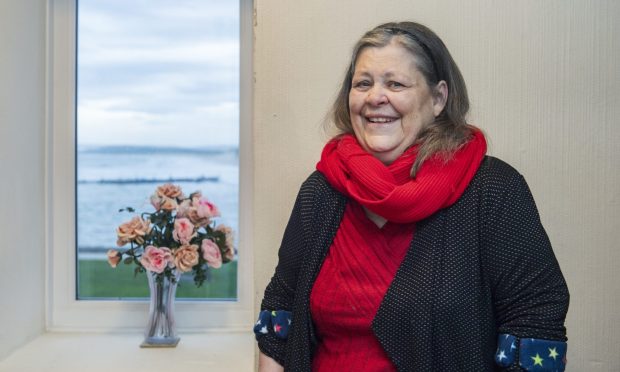
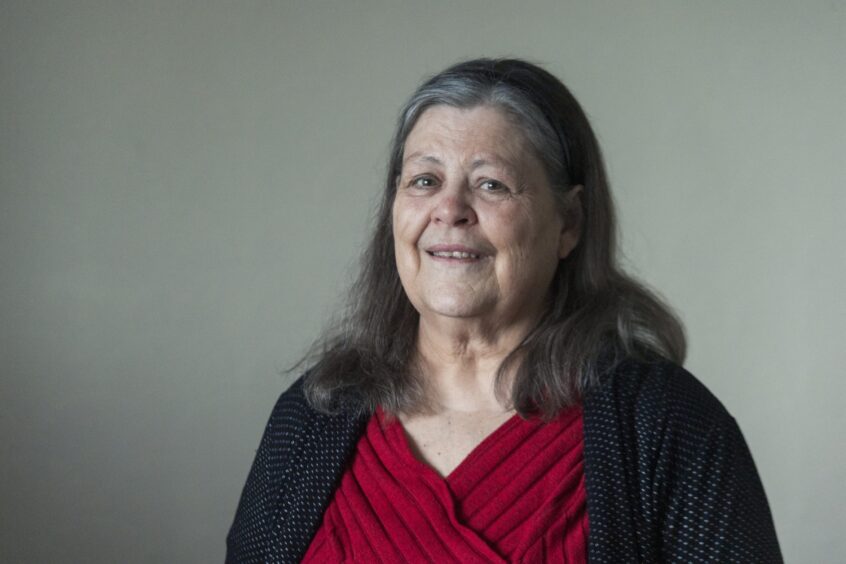

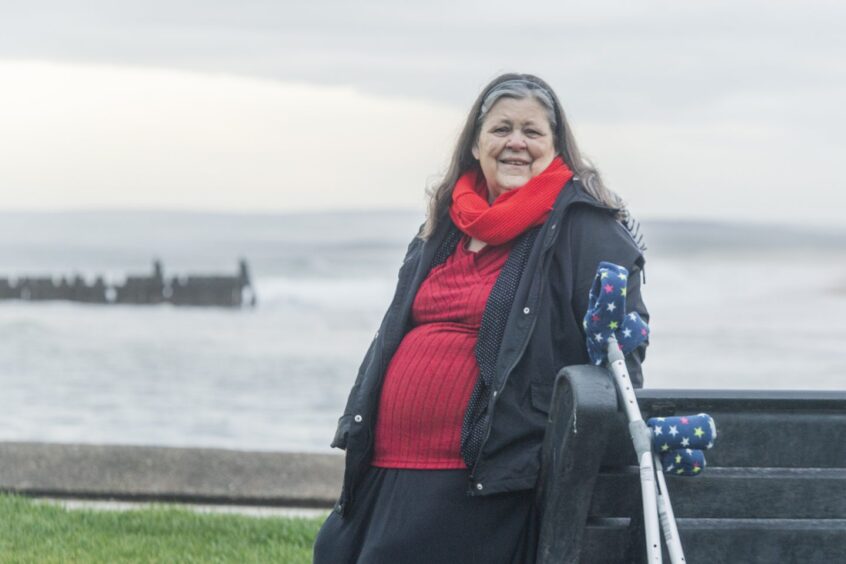
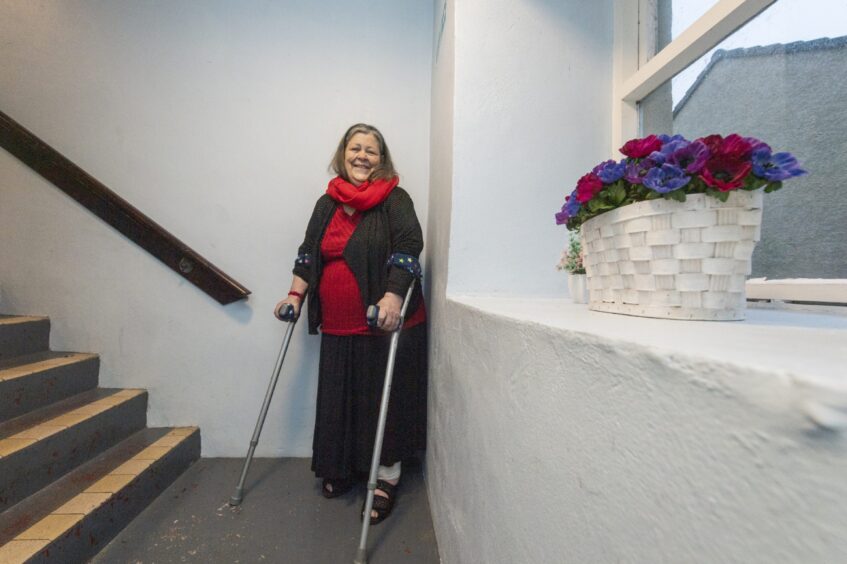
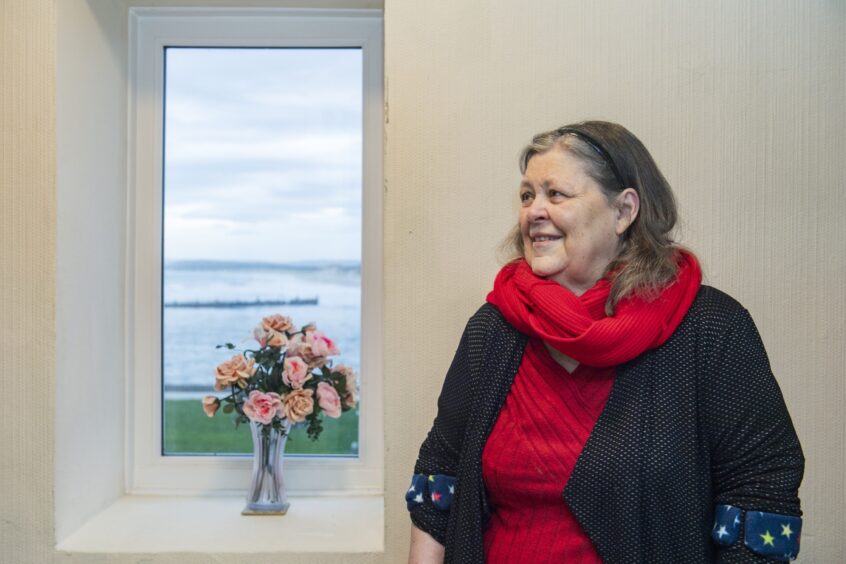
Conversation